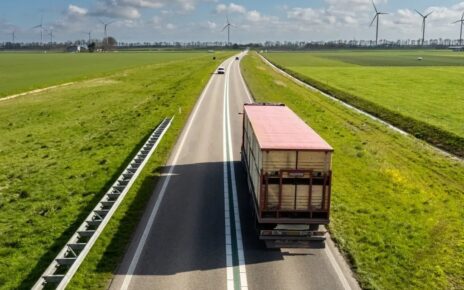The growing preference for long term vehicle rentals represents a fascinating shift in human transportation patterns, one that reveals profound truths about our evolving relationship with material possessions and mobility in the modern age. This trend, particularly prominent in densely populated urban centres like Singapore, offers a window into the changing psychological and economic calculus of contemporary homo sapiens.
The Historical Trajectory of Vehicle Ownership
For much of the 20th century, private vehicle ownership stood as both practical necessity and powerful status symbol. The automobile represented the culmination of thousands of years of human mobility evolution—from bipedal walking to domesticated horses, from steam engines to internal combustion. The privately owned car became the ultimate expression of personal freedom and economic achievement.
Yet when we examine this phenomenon from an evolutionary perspective, the obsession with vehicle ownership appears as a curious historical anomaly. For the vast majority of our species’ existence, humans related to tools and resources through patterns of sharing, temporary usage, and communal access rather than exclusive individual ownership.
The Cognitive Shift Toward Access Over Possession
The modern pivot toward long term vehicle rentals reflects a return to more ancient patterns of resource utilisation, albeit through sophisticated technological and economic frameworks. This shift manifests through several key psychological adaptations:
- Recognition that value derives from usage rather than ownership
- Decreased emphasis on vehicles as status symbols
- Heightened awareness of the financial inefficiencies of ownership
- Growing comfort with temporary, contractual relationships to material goods
“The contemporary Singaporean approach to transportation increasingly focuses on optimised utility rather than emotional attachment to vehicles—a cognitive reorganisation that parallels changes in how we relate to housing, entertainment, and even information.”
The Economic Logic Behind the Transformation
From a purely rational economic perspective, the advantages of long-term vehicle rental arrangements are substantial, particularly in Singapore’s unique context. The mathematics of ownership versus access has shifted decisively as a result of several factors:
- Accelerating depreciation rates of vehicles with rapidly evolving technology
- High opportunity costs of capital tied up in rapidly depreciating assets
- Increasing complexity and cost of maintenance for modern vehicles
- Rising costs associated with vehicle ownership in urban environments
- The economic uncertainty of long-term commitments in a rapidly changing world
Singapore’s Urban Landscape as Catalyst
Singapore’s distinctive urban environment has accelerated this transition in ways that reveal broader truths about how physical geography shapes human behaviour patterns. The island nation’s limited land area creates unique pressures that make ownership particularly burdensome:
- Extreme premium on physical space for vehicle storage
- Sophisticated road pricing mechanisms that increase usage costs
- Excellent public transportation alternatives that reduce the necessity of constant vehicle access
- Dense urban layout that minimises the practical advantages of ownership
The Technological Amplification of Rental Systems
Digital platforms have dramatically reduced the transaction costs associated with vehicle rentals, creating unprecedented efficiency in matching vehicles to users. This technological layer has transformed what was once a cumbersome process into a seamless experience.
“The digitisation of vehicle rental services represents a perfect example of how technology can facilitate a return to more natural human resource-sharing patterns while eliminating the friction that once made ownership seem more convenient.”
The data analytics capabilities now embedded in long-term rental systems create additional value through:
- Predictive maintenance scheduling that prevents breakdowns
- Optimised vehicle selection based on actual usage patterns
- Dynamic pricing models that better reflect true costs
- Seamless integration with other mobility options
The Environmental Dimension
The environmental implications of the shift toward long-term rentals reflect our species’ growing awareness of planetary boundaries. While not always the primary motivator for individuals, the collective effects of optimised vehicle utilisation include:
- Reduced total vehicle production through higher utilisation rates of existing vehicles
- More rapid fleet turnover leading to faster adoption of cleaner technologies
- Optimised vehicle selection for specific usage needs rather than maximum capacity requirements
- Reduced urban land dedicated to vehicle storage
The Future Trajectory of Mobility Solutions
As we project current trends forward, several fascinating possibilities emerge for the evolution of long-term vehicle rentals, particularly in forward-looking environments like Singapore:
- Integration of autonomous vehicles into rental fleets, further reducing costs
- Subscription models that blend public transport, private vehicles, and micro-mobility options
- Dynamic vehicle swapping based on specific journey requirements
- Community-based shared ownership models that combine the benefits of ownership and rental
The Psychological Adaptation to Non-Ownership
Perhaps most intriguing is how this shift reflects a broader psychological adaptation to impermanence. The traditional human desire to own—likely an evolutionary adaptation to resource scarcity—is being rewired through our recognition that flexibility often provides greater advantage than permanence in rapidly changing environments.
This cognitive shift extends beyond transportation to how we relate to homes, consumer goods, and even careers—suggesting a profound reorganisation of our species’ relationship with material possessions in general.
Conclusion
The movement toward flexible vehicle arrangements represents more than a simple economic calculation—it reflects a deeper reimagining of our relationship with technology, resources, and mobility. This transition reconnects us with more ancient patterns of human resource utilisation while leveraging modern technology to eliminate historical inefficiencies.
As our species continues to urbanise and adapt to increasingly complex environments, we can expect this pattern to accelerate across various domains of material goods. For those seeking to understand the future of human relationships with technology and resources—or simply looking for a more rational approach to mobility—there remains much wisdom in exploring the growing phenomenon of long term vehicle rentals.





